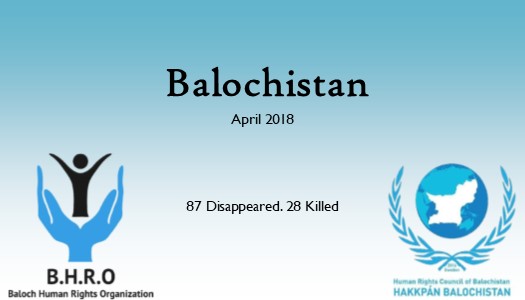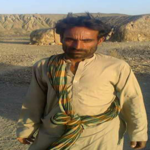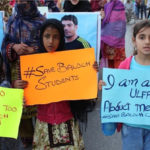Human rights situation in Balochistan remained grim in April 2018, as 87 cases of enforced disappearance and 28 killings were reported for the month in seven different districts.
A monthly report for April 2018 jointly researched and issued by the Human Rights Council of Balochistan (HRCB) and Baloch Human Rights Organization (BHRO) also include nine more cases of enforced disappearances that happened in March but reported in April.
Military has been engaged in a ruthless counterinsurgency operation in Balochistan since 2004 to curb a separatist insurgency. Thousands of Baloch activists and sympathizers have been extra judicially killed and even more have been forcibly disappeared.
Nine persons were killed by military in different parts of Balochistan in April.
Bodies of two previously disappeared persons were found during the month. Families blame that they were abducted by security forces. Four persons were killed in shelling of military’s helicopters during military operations, two were shot killed by the forces at the spot while three persons were targeted killed by the military backed gunmen.
A five-month pregnant woman from Raghai Besima, Nazgul, who had been taken away by security forces and kept in makeshift prison run by a military-backed tribal chief since December 2017, also died in custody.
Paramilitary Frontier Corps picked up 19 locals, including women and children, in the Besima’s Raghai area in December 2017.
They had been initially taken to the military camp in Mashkay, but later handed over to the military-backed tribal chief, Ali Haider Mohammed Hasni, who kept them hostage at his makeshift prison.
Nazgul Mohammad Iqbal was pregnant when taken into custody. She died on April 6, 2018, after showing symptoms of pregnancy-related complications.
Ali Haider’s guards forced Nazgul and other prisoners to work as household servants. Guards refused to call medical help as her symptoms grew fatal.
Another lady, Jameela was shot dead by unknown gunmen at her house in Hoshab area of Turbat district Kech on 1st of April 2018. Her kids said in a video that some masked gunmen broke into their house, dragged her and then shot her dead.
The body of Jameela’s brother, Iqbal Swali, was found on roadside the same day. Balochistan Liberation Front, a separatist militant group claimed responsibility for his murder, saying Iqbal had been affiliated with their group but later surrendered to the military.
Meanwhile, 10 members of religious minorities were killed by religious extremists.
Shia and Christian religious communities often come under attack by Islamic extremist militants in the region.
Four members of a Christian family were killed on 1st of April 2018. The family was riding a rickshaw on their way on Shah Zaman Road in Quetta, capital of Balochistan, when gunmen on a motorbike opened fire. All the family and the rickshaw driver were killed on the spot.
Two other Christians were shot killed by unknown gunmen on a motor bike on 14 April 2018. They were heading back home after attending Sunday mass in Essa Nagri area, Quetta.
Two members of Hazara community were shot killed on 27 April, when unknown gunmen opened fire on an electronics shop in Quetta. The victims include Muhammed Ali Rezai, a senior member of the Balochistan Shia Conference.
Sources say Mr. Rezai normally travelled with a body guard, but they were removed after directives of Supreme Court. Two other members of the same community were shot killed in Quetta on 22 April 2018.


